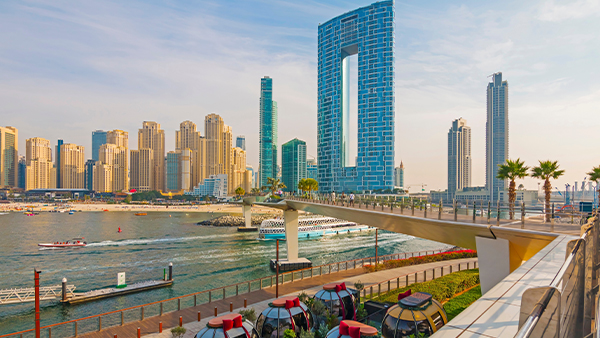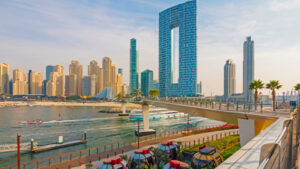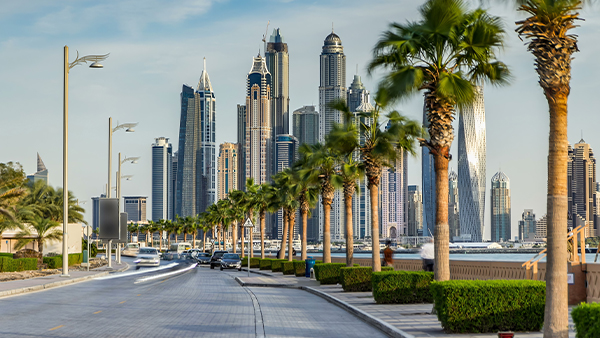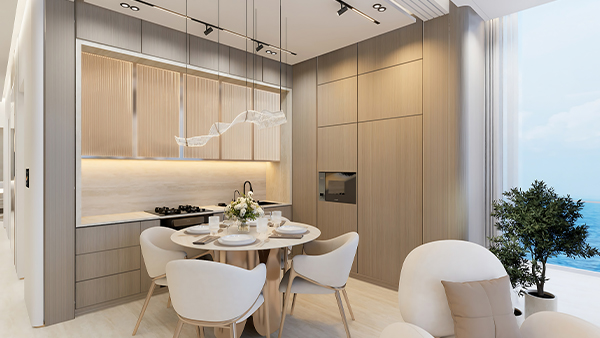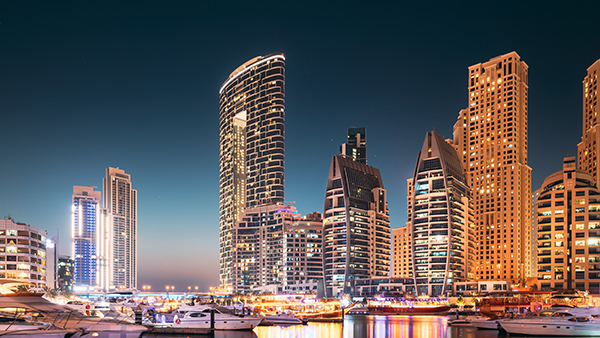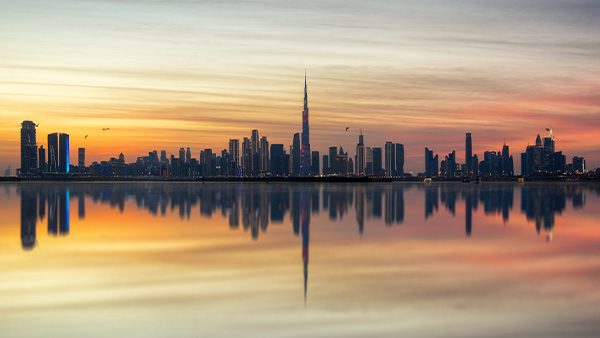Dubai continues to be one of the most sought-after property markets in the world.
From world-class infrastructure to investor-friendly laws and tax-free returns, the city offers an irrefutable case for international buyers.
On this trajectory, the first question foreign investors ask is: What is the difference between freehold and leasehold property in Dubai?
Understanding the differences helps make a confident and profitable real estate investment in the UAE.
Understanding Freehold Ownership in Dubai
Freehold property in Dubai gives complete ownership of the property and land to the buyer, so they can sell, lease, or occupy the property without any restrictions.
Foreign nationals are allowed to acquire Dubai freehold properties in designated zones, including prime locations such as Arjan, Dubai Marina, Downtown Dubai, Jumeirah Village Circle (JVC), and Business Bay.
Freehold properties are recorded with the Dubai Land Department (DLD), and owners receive an official title deed. In many cases, owning a freehold property in Dubai also enables the buyer to apply for long-term residency based on the property’s value.
Leasehold Ownership and Its Scope
Leasehold ownership allows the person leasing to use or rent out the property for a fixed term, anywhere between 30 and 99 years.
The land, however, remains under the ownership of the freeholder.
After the lease expires, ownership reverts to the original landowner unless extended or renewed.
Leasehold properties are more common in older parts of Dubai, such as Deira and certain areas of Bur Dubai. Buyers may need permission for structural changes or renovations, and the resale process can be more complex than that of freehold properties.
While leasehold may not offer the same level of autonomy as freehold, it can still be a viable option for those looking to live in well-established communities or invest with a short-term view.
Legal Framework and Investor Protection
Dubai’s property market operates under a robust legal framework designed to protect both local and international investors. The Dubai Land Department (DLD) and the Real Estate Regulatory Authority (RERA) ensure all transactions are registered and transparent.
Whether a property is freehold or leasehold in Dubai, both sectors benefit from secure documentation, regulated dispute resolution processes, and higher returns.
Whether buying for residence or investment, property buyers in Dubai can be assured of clarity and ease of ownership transfers.
Freehold vs Leasehold in Dubai: Factors to Consider
Several factors can influence a buyer’s decision between freehold and leasehold ownership in Dubai:
Investment Horizon
Buyers seeking long-term returns and capital appreciation opt for freehold properties, which provide full control and enduring value.
Leasehold, with its time-limited nature, may be better suited to short to mid-term strategies.
Ownership Rights
Dubai’s freehold property offers indefinite ownership of both land and structure, whereas leasehold limits rights to usage for a specific duration.
This difference can impact resale value and the potential for generational wealth transfer.
Renovation and Control
Freehold owners enjoy greater flexibility in modifying or upgrading their properties. Leasehold arrangements may require approvals from the freeholder or managing entity, limiting design freedom.
Location and Community Access
Leasehold properties are often located in mature, central districts. Freehold zones, meanwhile, include newer master-planned communities with comprehensive lifestyle amenities, ideal for families and modern professionals.
Newer freehold properties for sale in Dubai can also be more profitable for investors prioritizing greater appreciation and margins.
Lifestyle, Design, and Quality Expectations
Today’s international property buyers are not just purchasing square footage; they are investing in lifestyle. Dubai’s freehold properties often feature world-class amenities, modern layouts, and thoughtful design that enhance everyday living.
Danube Properties, for example, integrates over 40 premium lifestyle features into its developments, from wellness centers and co-working spaces to rooftop lounges and sports facilities.
These homes are designed to elevate daily life while maximizing rental appeal and investment potential.
Financing Options for Foreign Buyers
Dubai’s real estate market is designed to be accessible, even for non-resident investors.
While traditional bank mortgages are available for eligible foreign buyers, they often come with stricter eligibility criteria, extensive documentation, and long-term interest obligations that may not suit everyone.
In contrast, developer-backed payment plans have made homeownership in Dubai far more convenient. Danube Properties, for instance, offers a highly flexible 1% monthly payment plan with minimal upfront costs.
These structured plans are tailored to modern buyers who prefer simplicity, transparency, and financial control without the burden of traditional financing.
As developers replace third-party lenders with investor-friendly plans and fewer barriers to entry, more buyers are opting for direct developer arrangements to secure their property faster, easier, and with greater peace of mind.
Freehold vs Leasehold in Dubai at a Glance
Freehold Ownership
Freehold properties grant full ownership of both the unit and the land it sits on.
Buyers, especially foreigners investing in designated zones, can sell, lease, or pass down Dubai’s freehold property without any time restrictions.
It is the most comprehensive form of property ownership available in Dubai.
Leasehold Ownership
With a leasehold, buyers can only use the property for a fixed period, normally 30 to 99 years. However, the land remains owned by the freeholder. Once the lease expires, ownership reverts unless renewed.
It is similar to long-term renting rather than true ownership.
Why Freehold Remains the Preferred Option
Among international buyers in Dubai, freehold property is often the top choice.
The freedom to sell, rent, or live in the property without seeking approval, along with the opportunity to pass on ownership to heirs, makes it highly attractive.
With increasing access to affordable payment plans, freehold properties are no longer limited to ultra-premium buyers. Developers like Danube Properties have introduced flexible financial models that make owning a home in Dubai both realistic and rewarding.
While leasehold may appeal to specific scenarios, freehold continues to dominate due to its legal simplicity and broader financial advantages.

